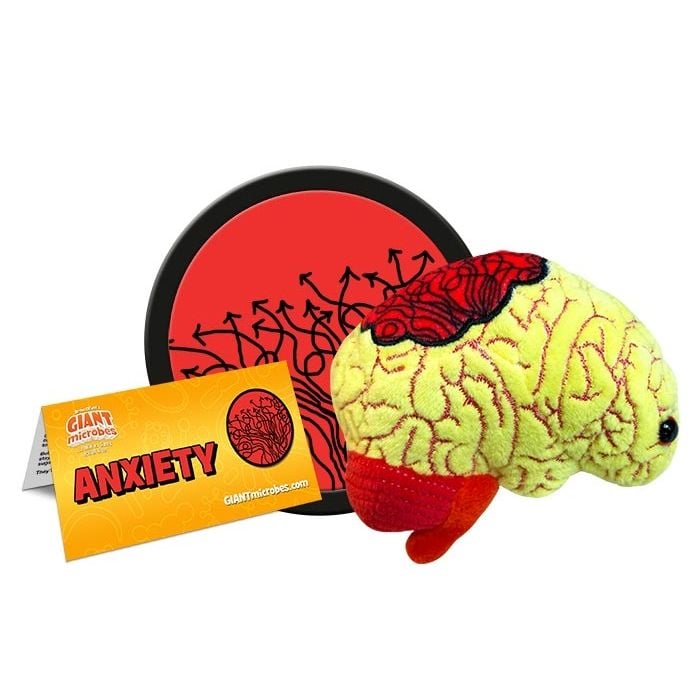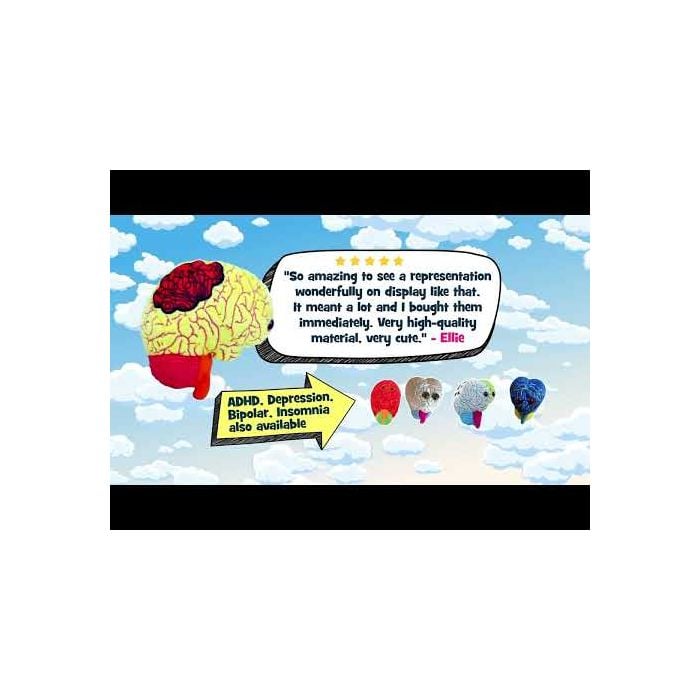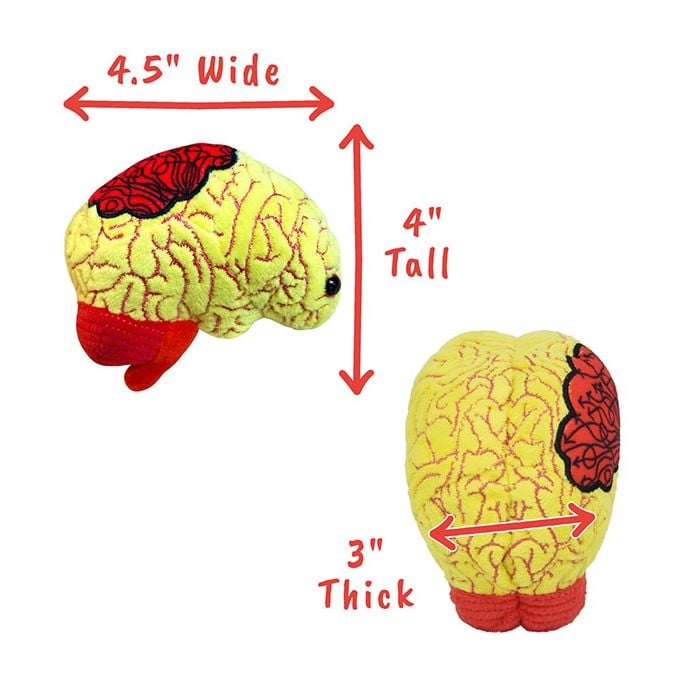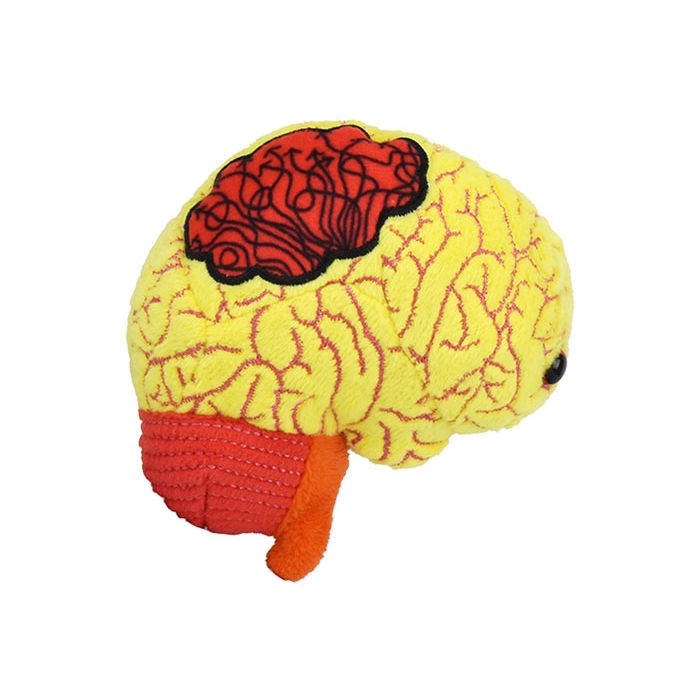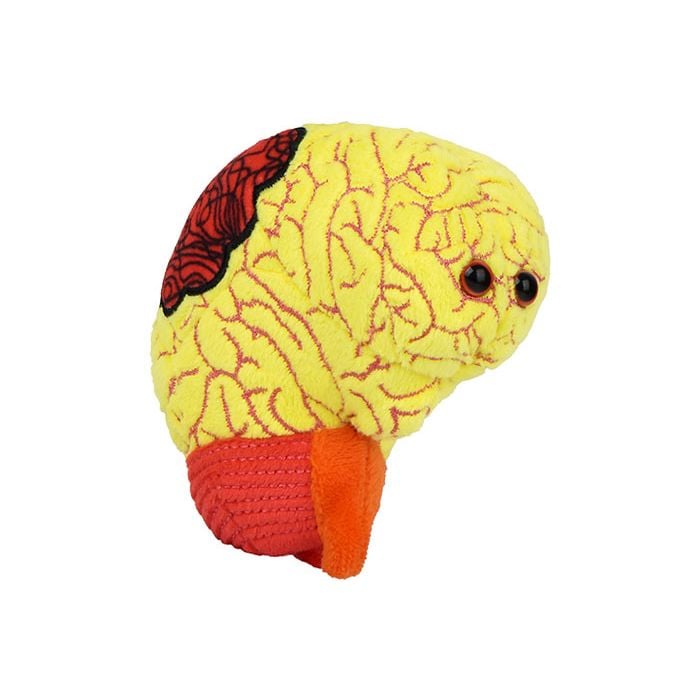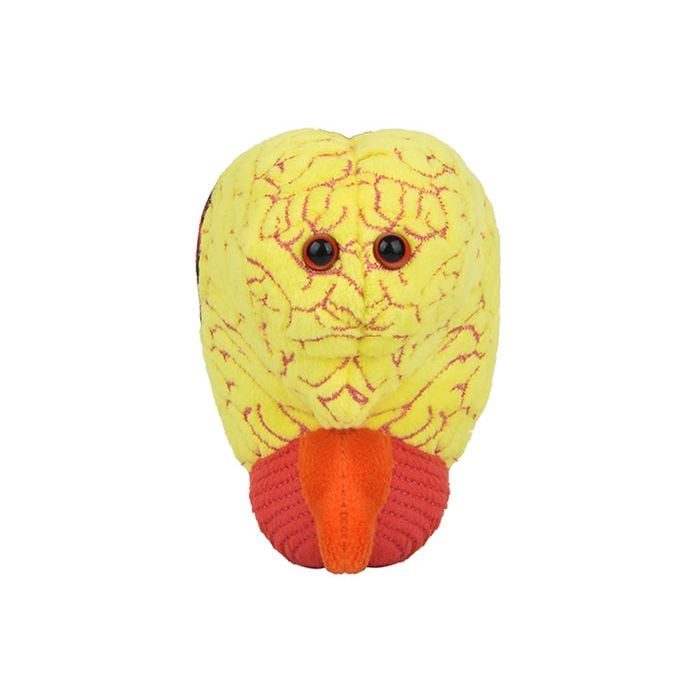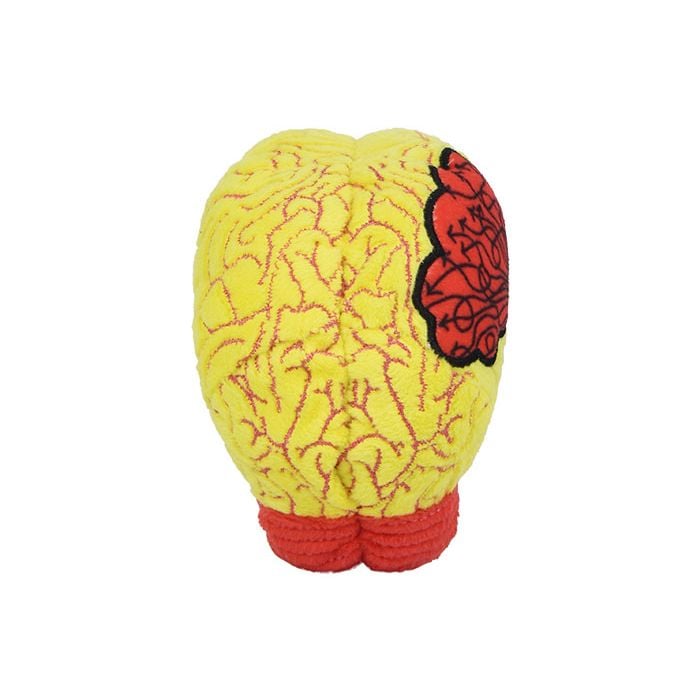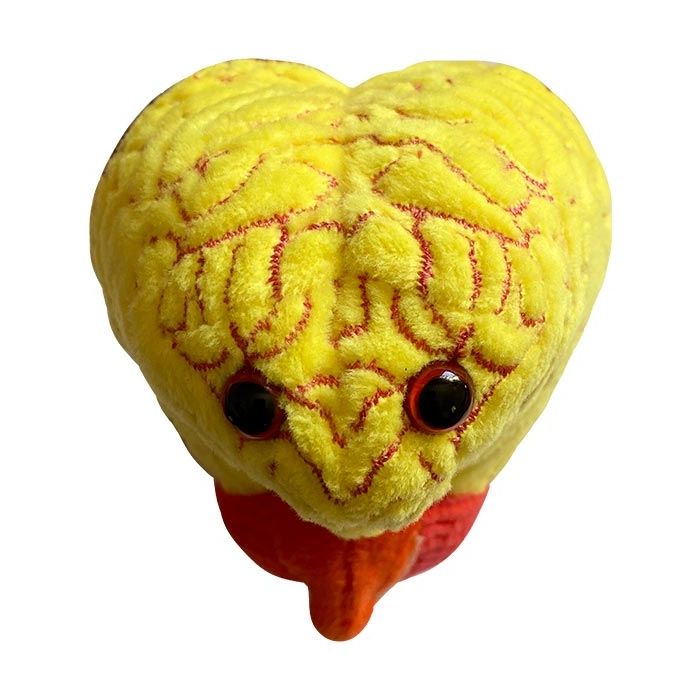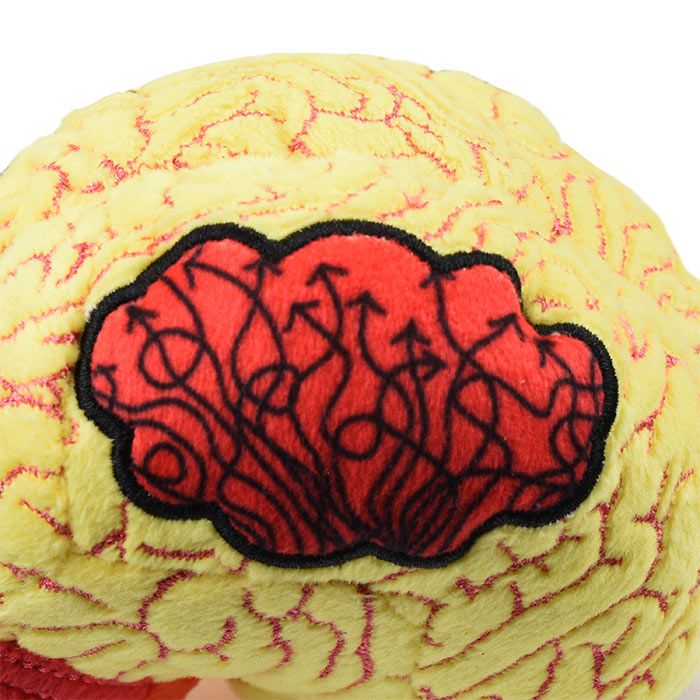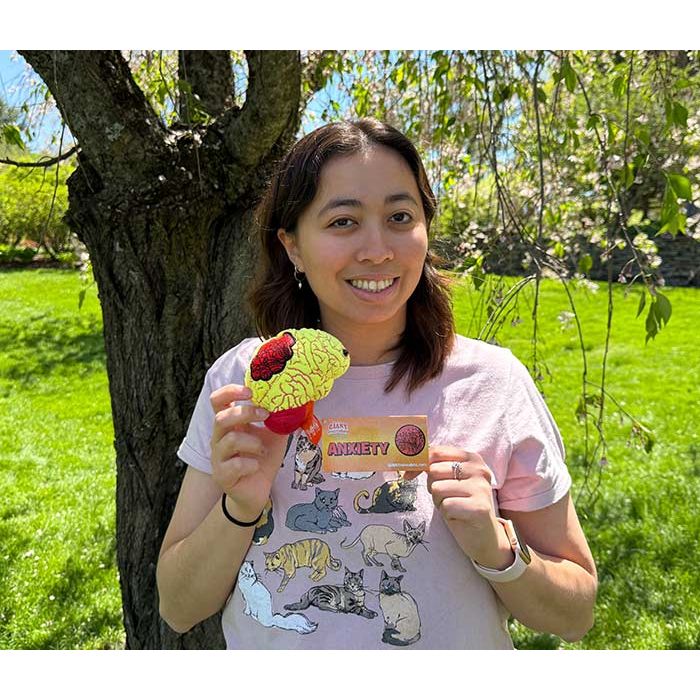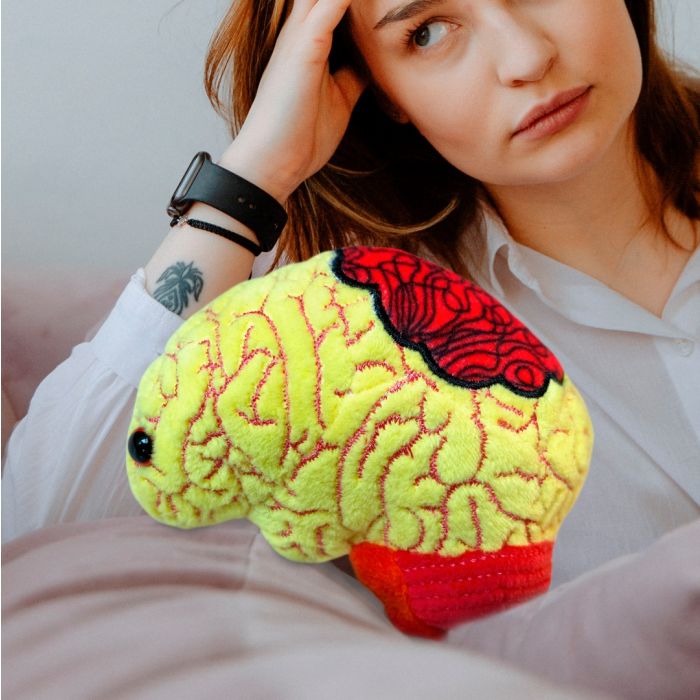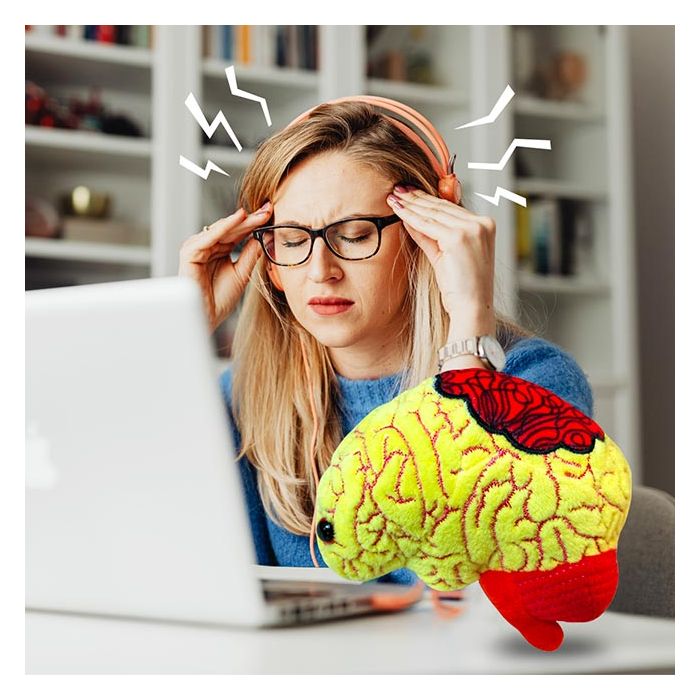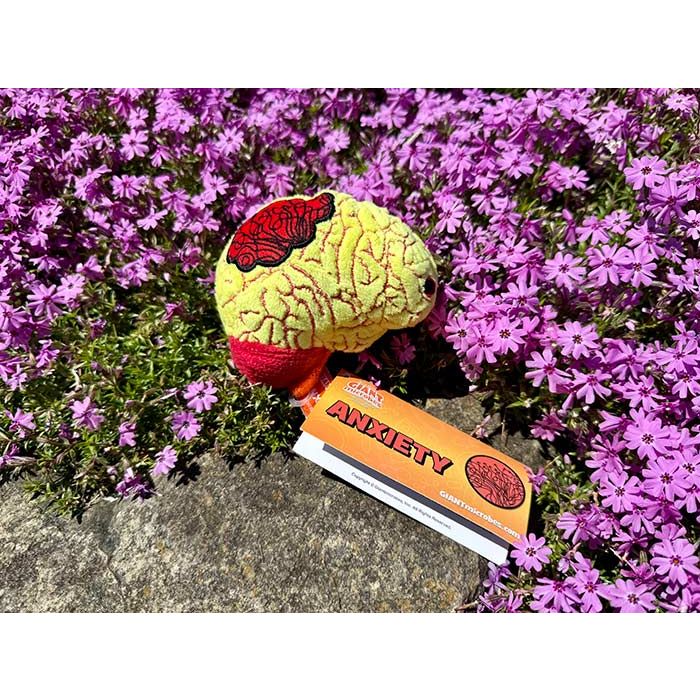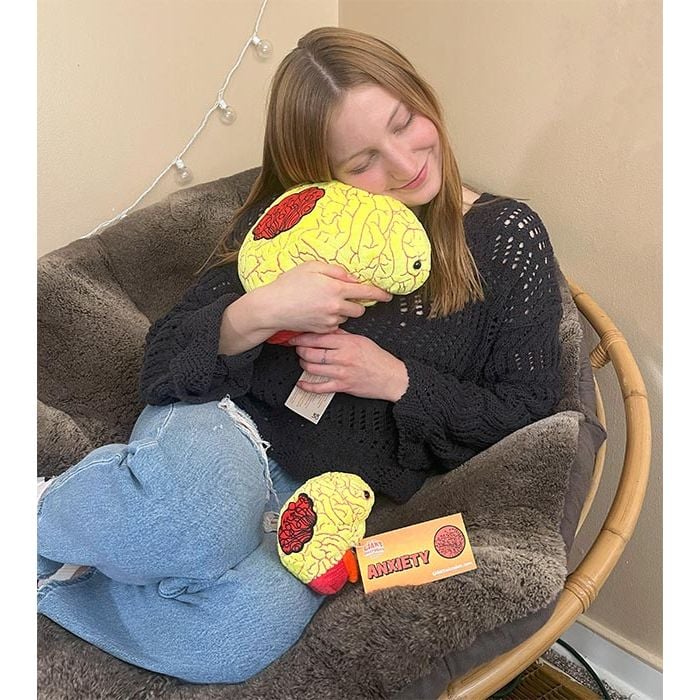Anxiety
Anxiety has always been a part of human life. The natural “fight or flight” reaction to stress and danger has enabled people to survive over the millennia. We all might feel anxious before taking a test, when faced with a problem at work, or before making a big decision. But anxiety disorders involve more than temporary worry and fear.
This plush representation features a brain with a thought cloud. For families, teachers, healthcare experts, public health agencies and friends - this is a memorable and useful tool to help educate, spread awareness, and get more people talking about this complicated and vitally important mental health topic.
Anxiety brain size is 4.5 x 4 x 3"

The National Alliance on Mental Illness is dedicated to building better lives for those affected by mental illness. NAMI's alliance of local affiliates and state organizations work in your community to raise awareness, educate and provide support. 5% of your purchase will be donated to NAMI.
Product Details
Additional Information
| Sizes | Giantmicrobes are based on actual microbes, cells, organisms and other critters, only 1,000,000 times actual size! Gigantic (GG) 16-24" XL (XL) 10-15" Original (PD) 5-8" Keychain (KC) 2-4" with clip |
|---|---|
| Materials | Plush from all new materials. Stuffed with polyester fiber fill. Surface washable: sponge with water & soap, air dry. |
| Packaging | Each plush microbe includes a printed card with fun, educational and fascinating facts about the actual microbe or cell. |
| Safety | Every product meets or exceeds U.S. and European standards for safety. For ages 3 and up. |
All about Anxiety
FACTS: Anxiety has always been a part of human life. The natural “fight or flight” reaction to stress and danger has enabled people to survive over the millennia. It is always helpful to be alert and frightened when a snake slithers or a bear growls nearby. In our modern world, people face different types of stress. We all might feel anxious before taking a test, when faced with a problem at work or before making a big decision. But anxiety disorders involve more than temporary worry and fear. If a person has so much anxiety that it becomes uncontrollable or debilitating to everyday life, it may be considered an anxiety disorder.
Healthcare experts use the Diagnostic and Statistical Manual of Mental Disorders, or DSM, to diagnose anxiety and other mental disorders. The symptoms of anxiety include excessive worrying, restlessness, difficulty sleeping and irritability. Globally, tens of millions of people suffer from anxiety disorders. With so many impacted, it is very important that everyone better understands this mental illness and its treatments. There are several types of anxiety disorders, including generalized anxiety disorder, panic disorder and various phobia-related disorders. All are highly treatable.
Generalized anxiety involves excessive, illogical worrying for no specific reason. Social anxiety presents itself in social situations. Panic disorder involves random panic attacks causing rapid heart racing and the feeling of choking or having a heart attack. Phobia disorders are when one has an intense and out of proportion fear of or aversion to specific objects or situations.
Anxiety disorders are generally treated with therapy, medication or both. Selective serotonin reuptake inhibitors, or SSRIs, are drugs that can reduce anxiety by increasing brain levels of serotonin, a neurotransmitter that influences mood, sleep and cognition. SSRIs block the reabsorption (reuptake) of serotonin into neurons. In addition to medication or therapy, lifestyle habits can be beneficial. It is important to try to wake up early, stay active and avoid self-medication. Stress management techniques can also be helpful. People should work with their healthcare professionals to select the best treatments.

















